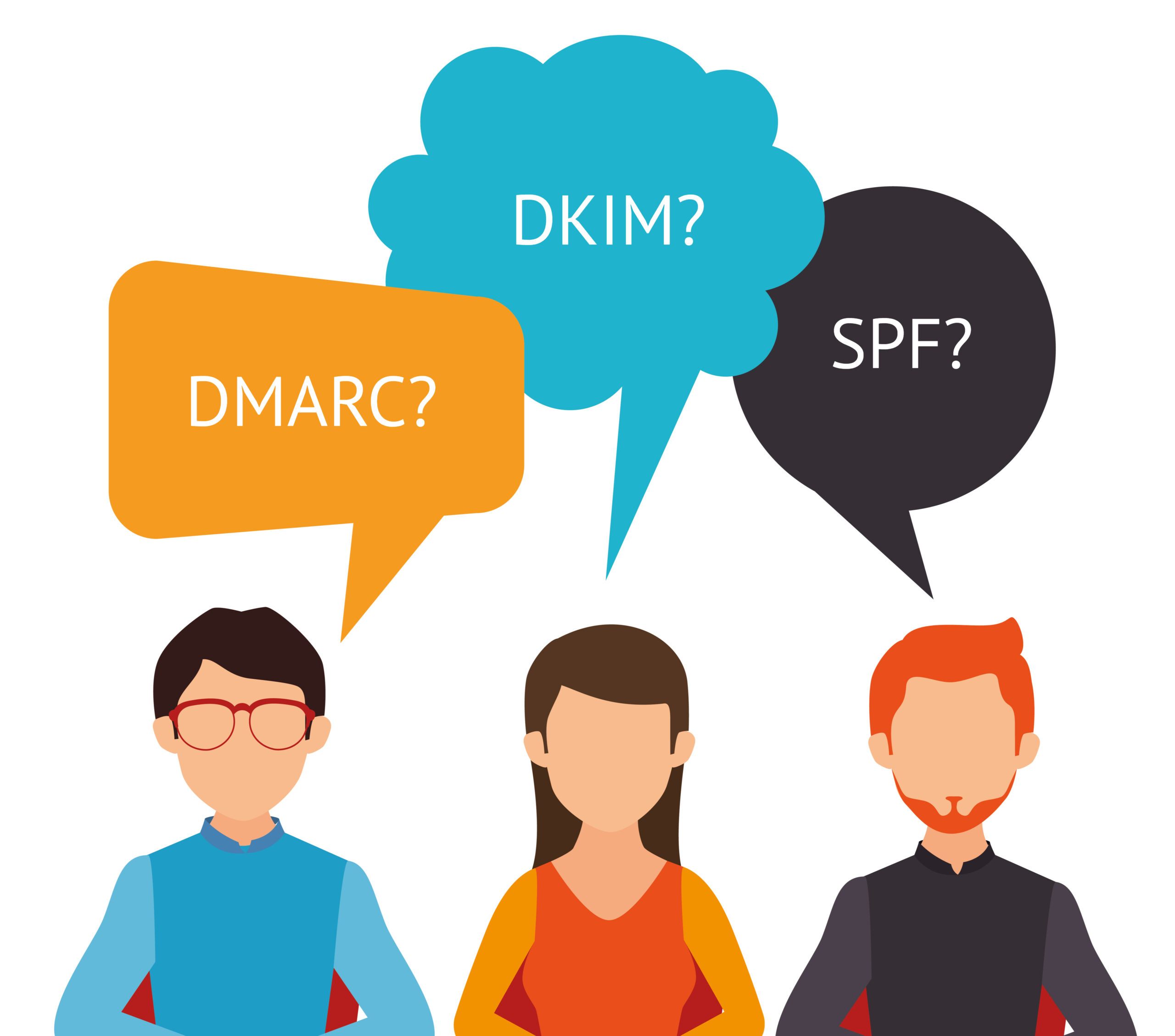Protecting your email domain with the right protocols will ensure that your messages are properly authenticated. This helps to improve email deliverability, reduce email spam, and help to stop email domain spoofing and phishing.
The DMARC, DKIM, and SPF protocols work together to authenticate your emails, keep your inbox secure, and protect your business reputation.
How Email Spoofing and Phishing Can Harm Your Business
Spoofing and phishing are two very common forms of cyberattacks that can be very damaging to your business.
When receiving an email from a known sender or business, you’re more likely to open it and engage with the email. This is why it’s a point of focus for hackers. According to a Verizon report, over 90% of phishing attacks are delivered by email.
As a result, both spoofing and phishing can harm your business in two main ways.
First, spoofing can harm your reputation as a business. If a client or customer receives and opens an email thinking it’s from your business and leads to a negative experience on their end, then this can hurt your reputation and even lead to a loss of that client or customer moving forward.
Second, your business and employees can fall victim to spoofing and phishing attacks which can lead to lost revenue, email inboxes flooded with spam, loss of sensitive information, and more. Even a single employee clicking on a malicious attachment can bring down your entire email communication.
Protecting your email domain with DMARC, DKIM, and SPF is the first step to ensuring your email communication remains private and protected.
What is SPF?
Sender Policy Framework (SPF) is an email authentication technique that helps to prevent spam, phishing, and spoofing for both recipients and senders.
Essentially, it uses the Domain Name System (DNS) and creates an SPF record that’s associated with that domain.
When an email server receives an email it compares the IP address of the sender to the IP address that’s listed in the SPF record. This determines if the email will be rejected, flagged as spam, or sent through.
What is DKIM?
Domain Keys Identified Mail (DKIM) is an authentication protocol that uses cryptography to verify the email was sent from an authorized mail server. It helps to make sure the email hasn’t been compromised or altered during the sending process.
When using this protocol a digital signature is added to the header of an email message. This key is then checked against the key listed in the domain’s DNS records. If they match, then the email is from a verified sender.
What is DMARC?
Domain-based Message Authentication, Reporting, and Conformance (DMARC) helps to tie the above email security policies together and helps to stop domain spoofing and phishing.
Plus, it links the domain name of the sender to what’s listed in the ‘From’ header and lets domain owners specify how unauthenticated emails should be processed.
Spoofing uses the ‘From’ address of an email domain to make the message appear like it’s from a legitimate sender. DMARC verifies whether the ‘From’ address is from the actual sender, or if it’s being spoofed.
It also lets you request reports from email servers that receive messages from your domain, so you can identify any malicious activity or authentication issues.
How DMARC, SPF, and DKIM Protect Your Email Inbox
All of the three protocols above help to authenticate your emails. Since spam and phishing emails are so common today, it’s a way for spam filters to recognize that the emails you send are legitimate.
Using these security protocols helps your business email communication in the following ways:
- Provides information about emails that you send to spot authentication errors
- Improves your email deliverability and sender reputation, so your emails are more likely to reach your recipient’s inbox
- Stops email phishing and spoofing from your email domain
When it comes to keeping your email domain and server secure you need all three protocols. Even though each solution serves a similar purpose, they work together to bring your email security to the high level it needs to be at today.
How MXGuardian Can Help Protect Your Business Email Domain
Securing your email domain is important for preventing spam, phishing, spoofing, and other cyber attacks. However, implementing these protocols can be difficult and time-consuming.
Plus, you need to make sure these protocols are implemented correctly. A misconfigured email server leaves holes that hackers can take advantage of.
With MXGuardian, DMARK, DKIM, and SPF, along with other security protocols are included in the complete email security solution.
MXGuardian offers customized spam filtering and rules, protection against zero-day attacks, phishing and ransomware blocking, and more, to keep you and your business safe 24/7.
Sign up today for a full-featured 30-day free trial and help protect your email domain from spoofing, phishing, and spam.
